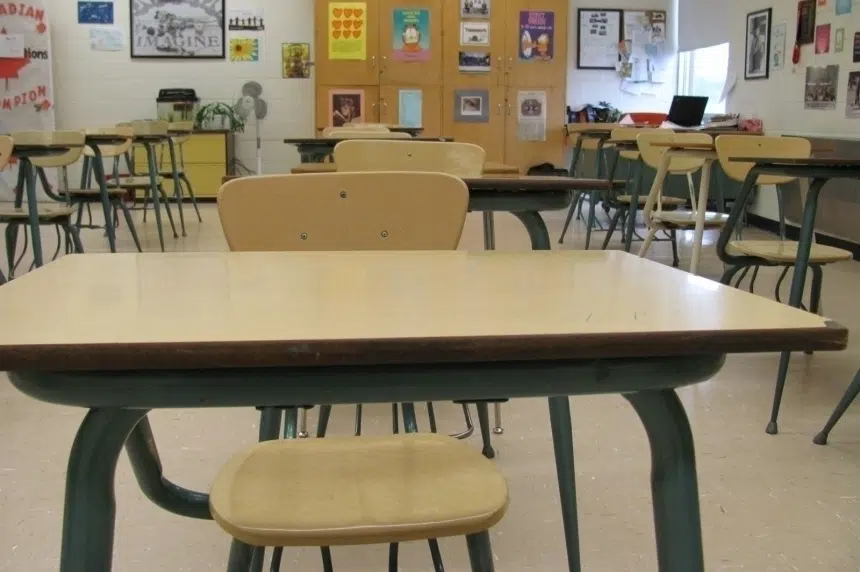Teachers and the government are not on the same page in terms of writing classroom size and composition into a contract, but both sides agree on the urgency of meeting to address those issues beyond the bargaining table.
Representatives from the two bargaining committees came together under a conciliation process which reached an impasse on Jan. 24. A conciliation report released Thursday said the most contentious issue between the sides is “what role, if any, that provincial collective bargaining should play” in addressing the issue of class size and composition.
The report did determine the issues are important to both sides, and suggested an urgent need to address them in meetings outside of bargaining talks.
“As a practical step, the minister of education, Saskatchewan School Boards Association and the Saskatchewan Teachers Federation leadership should meet in person within the next four weeks to explore potential partnerships in support of the classroom environment,” the report said. “There should also be discussion of initiatives to improve the collective bargaining process going forward.”
Education Minister Gord Wyant said Thursday he is open to meeting with teachers to discuss the issues of classroom support.
“I think that the conciliator was hopeful that having a direct conversation between the leadership of the STF, the SSBA and my office would lead to a different or a continued conversation about this issue,” Wyant said.
He highlighted the previous efforts of the ministry to form a committee last fall to address the significant issue of classroom size and composition, but noted the STF did not accept the invitation to participate at that time.
He said he will send a letter this week inviting STF and SSBA leaders to meet with him and hopes it will lead to a better conversation about solutions to the issue.
“We started this process last year because we realized that class size and composition was a significant issue in the classroom,” Wyant said. “I think I’ve commented on a number of occasions and I’ve toured many, many classrooms and I’m certainly aware of the issue.
“I’ve made no secret about the fact that it’s a challenge; the challenge really is how do we address it.”
The minister maintained the government’s position remains clear that mandating classroom size or composition in a collective contract agreement is not the answer.
“Every classroom is different, every school is different and every school division is different and I think the STF appreciates that too, so having a process in a collective agreement that’s generally not very flexible won’t lend itself to solving it. I do think this is really a local issue that has to be determined locally,” Wyant said.
Wyant said mandating classroom composition and size just turns school administrators into compliance officers.
STF president Patrick Maze disagreed, saying the issues of classroom size and complexity fall under the teachers’ right to bargain over working conditions and should be put into a collective bargaining agreement.
He said ultimately if the government does recognize there are issues in classrooms across the province, then the solutions should be addressed within bargaining.
“If they’re serious about fixing it and wanting to meaningfully fix classrooms, then what would be the problem with writing that into an agreement if it’s going to happen anyways?” he said. “Why are they so reluctant to just put those terms into the agreement so that we can have assurance and confidence that the resolution is actually going to find its way into Saskatchewan classrooms?”
Despite the disagreement over the right to negotiate over classroom composition and supports, Maze is encouraged by the wording of the conciliation report in recognizing the urgency of meeting in person with the education minister to discuss the issue of classroom supports right away.
“In our classrooms immediately right now, we have students who are suffering and not receiving supports that could get them better education and could provide them with a better future,” Maze said.
Maze said the wording of the recommendation to set a meeting with the education minister makes it more important and urgent than dealing with the government’s bargaining team.
“Meet directly with the minister and let’s get some immediate steps implemented to support teachers and students in the classroom,” Maze said.
The sides were also unable to reach an agreement for a proposal on how to handle substitute teachers’ contracts.
The conciliation report recommended a proposal to increase teachers’ salaries by two per cent this year and next year and one per cent retroactive to last year, which fits the pattern of other public sector wage increases.











